#japanese gods
Explore tagged Tumblr posts
Text

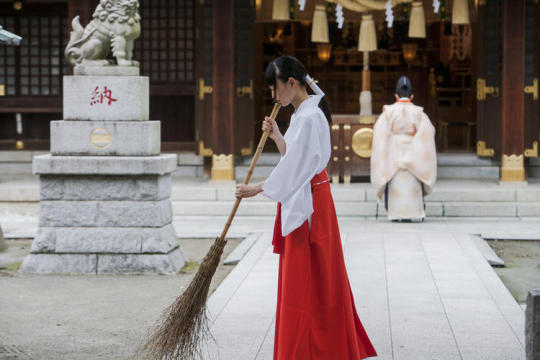
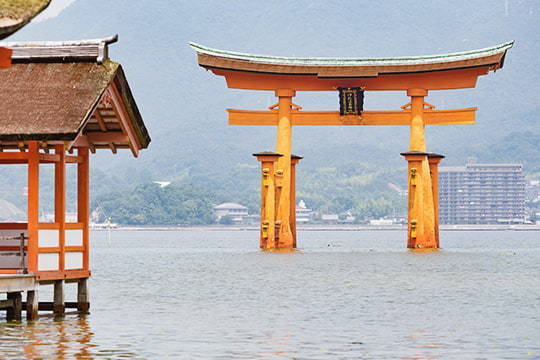

Sean bienvenidos mis queridos fanáticosarqueológicos a una nueva entrega de prehistoria Japónesa en esta ocasión nos trasladamos a la pregunta ¿Cuándo se originó el sintoísmo?. - Aunque parezca raro es una religión que se conformo durante el periódo Jōmon (17.500-300), para ser exactos a finales de dicho período y continua hasta nuestros días los dioses del sintoísmo, se les llama Kamis ( dios) ya que para los japoneses todo tenía un dios las montañas, ríos. - El sintoísmo tiene influencias chinas, coreanas de hay que tenga similitudes con el taoísmo, ¿Qué dos libros recogen la categoría de los Kamis? Son el Kojiki(713d.c) y el Nihonshoki(720d.c). - Espero que os guste y nos vemos en una próxima públicacion un cordial saludo. 🇯🇵 私の愛す��考古学ファンを日本の先史時代の新作に歓迎します。今回は、神道がいつ始まったのかという質問に移ります。 - 奇妙に思えるかもしれませんが、縄文時代(17500-300)に形成された宗教であり、正確にはその時代の終わりに、今日まで神道の神であり、カミス(神)と呼ばれています。 日本人にとって、山や川にはすべて神がいました。 - 神道は中国、韓国の影響を受けており、道教との類似点があります。 カミスのカテゴリーに分類される2冊の本は何ですか? こうじき(713d.c)と日本書紀(720d.c)です。 - よろしくお願いします。次の出版物で心からのご挨拶を申し上げます。 🇬🇧 Welcome my dear archaeological fans to a new installment of Japanese prehistory, this time we move to the question, when did Shintoism originate? - Although it may seem strange, it is a religion that was formed during the Jōmon period (17500-300), to be exact at the end of that period and continues to this day the gods of Shintoism, they are called Kamis (god) since for the Japanese everything the mountains and rivers had a god. - Shintoism has Chinese, Korean influences, and there are similarities with Taoism. What two books are classified under the category of the Kamis? They are the Kojiki (713d.c) and the Nihonshoki (720d.c). - I hope you like it and see you in a next publication a cordial greeting.
#kamis#kami#japanese gods#history#japan#jōmon#jōmon period#prehistory#japanese prehistory#taoism#china#korea#religious history#kojiki#Nihonshoki#カミス#カミ#日本の神々#歴史#日本#城門#ピリオドジョモン#先史時代#先史時代日本人#道教#中国#韓国#ヒストリアレリギオーザ#コジキ#日本書紀
92 notes
·
View notes
Text
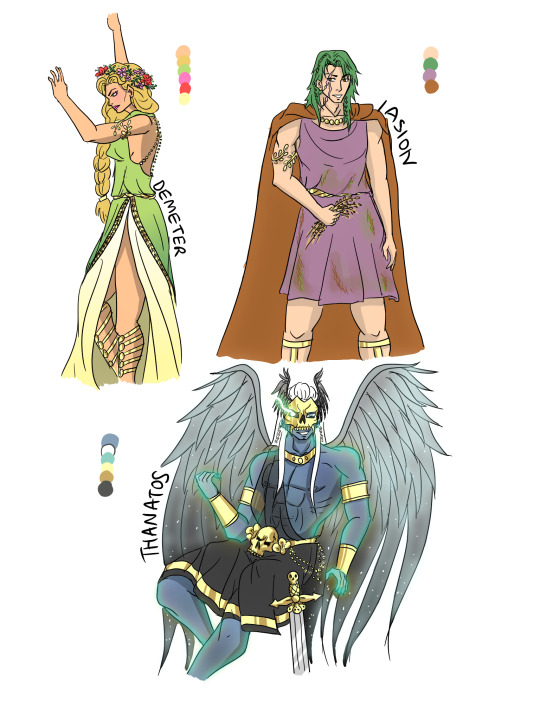
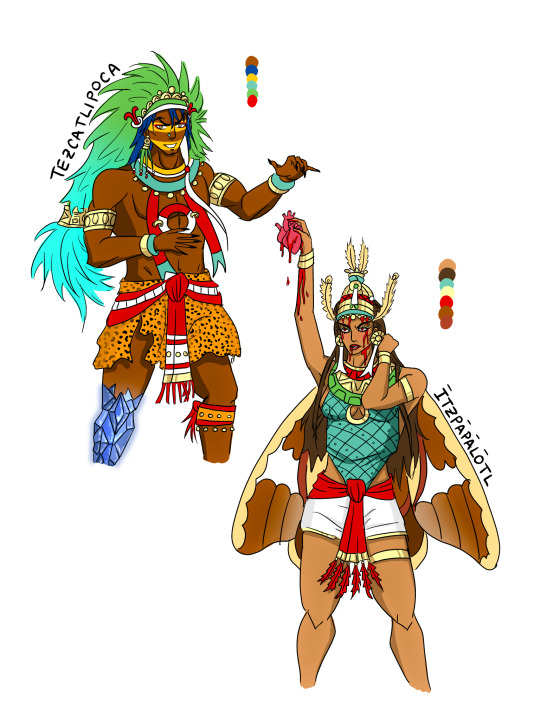
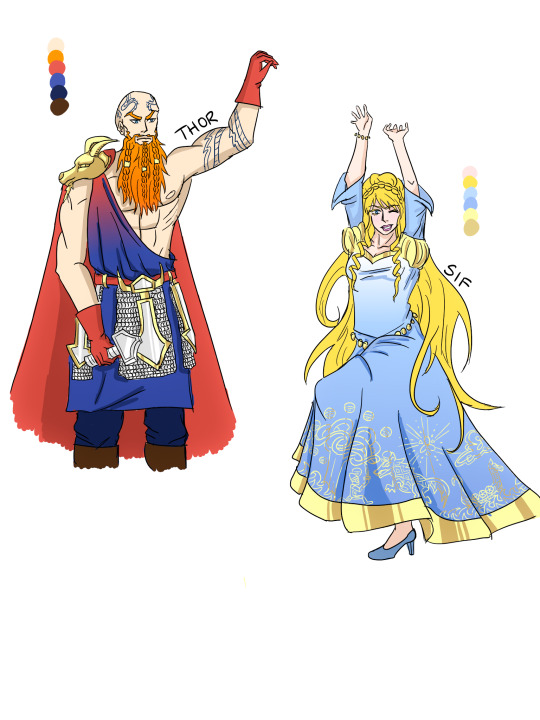

more greek + aztec + norse + japanese gods concepts i've been thinking about 💖
more concepts
#29th may 2023#demeter#iasion#thanatos#tezcatlipoca#itzpapalotl#amaterasu#tsukuyomi#susanoo#greek gods#greek mythology#aztec gods#aztec mythology#japanese gods#japanese mythology#mythology#mythology art#my art#thor#sif#norse gods#norse mythology
131 notes
·
View notes
Note
I require the elixir of life m'lord (headcanons abt the trickster gods ie set loki tez hermes huehuecoyotl heck throw in odin and susanoo for a lil bit of razzle dazzle)
-mythos made of soup
Hi Kata! and yes I have SO MANY HCS about this gang.
Here are my hcs:
Mix and matching the prankster and prankee. Because we all know these gods have been dealing with their respective trickster for centuries on end, like the norse world has been dealing with Loki's shit for way too long to not know what's coming. But that's the beautiful thing of trickster gods banding together---they come up with new methods of creating chaos. And of course they use it to torture gods like Huitzilopochtli and Osiris.
They definitely have game nights, but very rarely does it ever work out. Like, they'll be playing Uno but the moment a +4 is laid down, you know that someone's going to be threatened with obliteration.
They look out for each other, you know? And I mean that in a sense where one of them is bored, finds out some shit that happened to another trickster god a century ago, and goes to mess things up for the pantheon. Or at least pickpocket them until all their gods have gone bankrupt (I see you there, Hermes)
There's always got to be a voice of reason, even within a group of people creating chaos. And more times than not I think that's because there are the chaotic tricksters (Loki, Tez, etc), and then there's the more serious "This is just murder it's not even trickery" tricksters (Set). Often, these two groups present each other with some version of "Are you sure this'll work out? I mean seems pretty stupid imo" and "This seems pretty heavy on the murder-y parts, tone it down a little we're not trying to start an ALL out war here..."
They go out to dinner sometimes, which often turns out like their game nights (although a little better).
Certain members of the group like hanging out together. Tez and Loki, because both are chaotic, Susanoo and Set because both are not so chaotic (Set definitely is sometimes, but I think he's a tad bit of the violent kind rather than the shits-and-giggles-pranks guy).
The rest of their pantheons are terrified at this new "alliance", as they should be. They'll be locking away their valuables in magic-proof containers for years after.
#mythology#aztec mythology#aztec gods#greek mythology#greek gods#norse mythology#norse gods#Egyptian mythology#egyptian gods#Japanese mythology#japanese gods#tezcatlipoca#hermes#set#loki#huehuecoyotl#odin#susanoo#ask#anon asks
12 notes
·
View notes
Text
youtube
Developing "CREATORS: Japanese Creation Story"
CREATORS is a short "virtual play" based on the Japanese creation story, a tragic tale between two deities, Izanami and Izanagi, tasked with creating the world.
Support on Patreon! Get the game early! WIP songs and graphics!
-
Also, my previously announced game "Looking Glasses" is on indefinite hiatus. Rest assured, this one has way more development. Most songs and dialogue are completed and finalized.
#game dev#gaming#rpg maker#japan#japanese mythology#japanese folklore#shinto#izanami#izanagi#minimal#teaser#Youtube#japanese gods#indie games#indie dev
9 notes
·
View notes
Text
Susanoo: I wasn't that drunk. I drove myself home. Tsukuyomi: Dude. Don't even try denying it. Tsukuyomi: I drove you home while you drove with a paper plate. Susanoo: Oh, i thought that was a dream Tsukuyomi: idiot.
#susanoo#tsukuyomi#japanese mythology#japanese gods#incorrect japanese gods#incorrect japanese mythology#incorrect mythology#mythology#s: reddit#queuetzalcoatl
12 notes
·
View notes
Text

☀️𝑇ℎ𝑒 𝐺𝑟𝑒𝑎𝑡 𝐴𝑢𝑔𝑢𝑠𝑡 𝐺𝑜𝑑𝑑𝑒𝑠𝑠 𝑊ℎ𝑜 𝑆ℎ𝑖𝑛𝑒𝑠 𝑖𝑛 𝑡ℎ𝑒 𝑆𝑘𝑦: 𝐴𝑚𝑎𝑡𝑒𝑟𝑎𝑠𝑢 Ō𝑚𝑖𝑘𝑎𝑚𝑖
✨I suddenly wanted to draw this goddess, because Idk, I think she's so wonderful, so here it is, it's been finished for a while but whatever-
#art#drawing#artists on tumblr#character art#digital art#portrait#goddess#japanese gods#japanese#amaterasu#mithology#digital artist#digital artwork#digital aritst#digital arwork#digital drawing#digital illustration#illusration#small artist#reshare
9 notes
·
View notes
Text
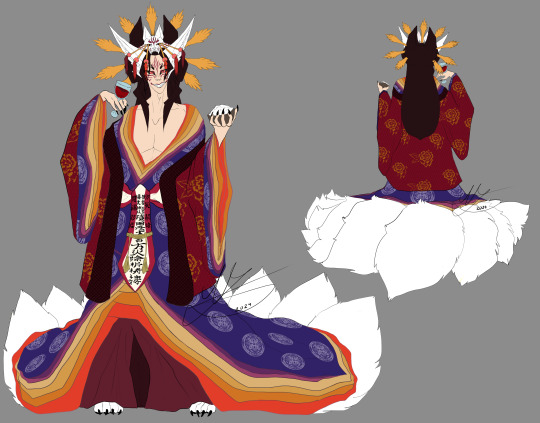
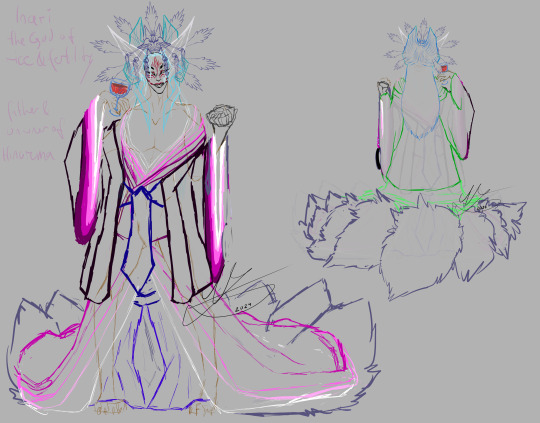

So this is Inari, Hinorumas Father I've put so much time in to the research and design details, I didnt want to render it to keep it as a simple character sheet and more easily understandable for future references and color pickings my autism rly went off here with all of this sooooo, I'm just going to info dump in the in a google document since its like, so damn long qwp !! If you're not interested in my info dump, no worries, it just gives you guys further insight in my thought process haha xp
I'm also uploading him on artfight, since I think that this first actual reference to his looks works well for that :3 >>>artfight<<< -Dairiem
#art#digital art#fox#kitsune#sketch#wip to finish#floofy#white fox#japanese mythology#inari#japanese gods#charater design#autism popping off with my special interest hahahahahaha#YIPPEE#junihitoe#historically inspired#FUCKING LOVE MY GOD AWFUL BRAIN /pos
9 notes
·
View notes
Text
I did have another design for Delphi while I was working on her but didn’t bother to show it but here you go

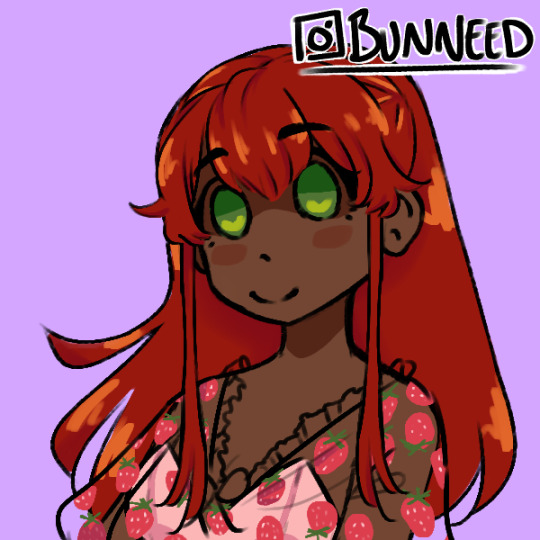
I also have some demigods and urban legends stuff that I will be posting they are from first to second just a heads up timelines will be mixed and age and year will probably not add up so please tell me if something doesn’t add up with the age and year some of the goddesses belong to me any that are related to multiverse and galaxy related stuff as well as earth, life and death I will tell you which ones are mine last thing I’m the fics aren’t out yet I might just post what I have done and if you like or don’t it I will make a part two for the people who do
#demigods#greek gods#flash dc#arrowverse#undertale au#roman gods#losh 2006#chara au#ever after high#aztec gods#percy jackson next generation#japanese gods#chinese gods#korean gods
8 notes
·
View notes
Text
Susanoo, grinning: Before you were what? Amaterasu: Before I was- Susanoo: What? Amaterasu: Before I was inter- Susanoo: Before you were interrupted? Amaterasu: Cut me off one more time and I swear I'll- Susanoo: What? Amaterasu: *makes frustrated sound* Tsukiyomi, nervously: Stop that. Before she hurts you.
#tw violence#queue#mythology#japanese mythology#japanese gods#japanese goddess#incorrect quotes#source: perchance generator#amaterasu#tsukiyomi#susanoo#susano#susanowo#susano o#siblings
32 notes
·
View notes
Text
Japanese Gods/Goddess/Demigods Headcanons in PJO Universe.
Unlike Zeus, Amaterasu is a calm leader, an incredible, radiant person and illuminated (kind of a joke here, but ok XD).
Gods can change gender in human form (disguise), in which they feel most suitable to have their children.
Japanese demigods learn to use Ki (medicinally), and are also experts in ancient Japanese swords (Katana, Tachi, Aikuchi). However, in missions, they use the Weapon that divine parents gave to their children more. In training They use katana/tachi.
The battle costumes of the Japanese demigods are in the style of the samurai with a bit of modernity.
Japanese gods, they can make children with another Asian nationality (Korean/Chinese).
The Japanese demigods, just like the Greeks/Egyptians, have a divine sake, which every 1 day to every 15 days, they drink the divine sake, to purify themselves and kind of make a connection with their godly parente.
The Japanese demigods are good at tanegashima.
3 notes
·
View notes
Text
Shinto
: : : : What is it?
Shintoism is the native belief/practice of the Japanese people and was first seen in the Yayoi Era (300 BCE - 300 BCE), In Shinto we worship the Kami, which is Japanese for Gods. Shinto is a polytheistic and animalistic belief system with no designated prophet or founder. Shinto is also where Yokai come from, when Buddhism appears at the end of the Kofun period (300 BCE & 538 BCE) Shinto Kami were emersed into it, which is why Japanese Buddism is a more unique Buddhism. All throughout Japan you can find temples and shrines dedicated to these Kami, and in WW2 the Japanese even worshipped their Emperor as one.
▪︎ Is it Open/Closed?
Shintoism is a form of Buddhism and has always been and always will be open, the Japanese welcome foreigners everyday to their temples to honor the Kami and they even have Shrines for Kami here in America.
: : : : Kamidanas & Ofuda
To work with a Kami one must setup a Kamidana and Ofuda, the Ofuda must be from a Japanese shrine, though, as they are made with a sacred ritual. A kamidana is a miniature Jinja (Shrine) made for at home worship. One must place an Ofuda inside the Omiya, an Ofuda is a charm that is infused with the essence of the Kami and the Omiya is a protective Spirit home for the Ofuda, altogether this is a Kamidana.
One can not have a Kamidana without an Ofuda. To properly place the Kamidana place it on a raised location, it must sit higher than the overall altar setup. If there is a second story of the home, put the word cloud above the Kamidana and make sure the area you choose is a clean one.
❀❀❀❀❀❀
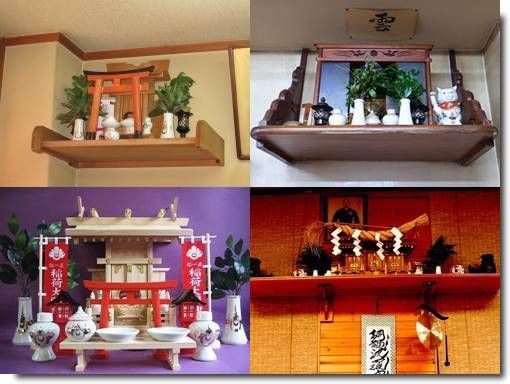
Above are examples of Kamidana setups
Tips for a tight budget: You can use a lego set, model set, or paper model set of a Japanese shrine as a Kamidana as well.
45 notes
·
View notes
Text
Shinto Gods: Raijin and Fuujin
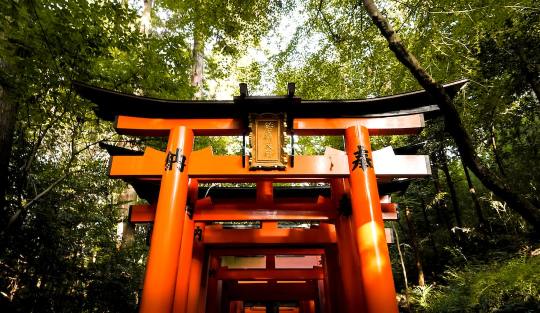
(Photo by Gio Almonte on Unsplash)
Raijin and Fuujin feature in my story The Cry of the Raijuu, but there is so much more to them in real world Shintoism. These are things I learnt about both to influence how I shaped them in my stories.
Raijin
雷神 - らいじん

Raijin’s name comes from a combination of the kanji for thunder (雷 kaminari) and god (神 kami), and he has similar titles all eluding to what he is the god of: storms. When a storm rolls in across the sky, Raijin is there with his drums which he plays with hammers to create thunder. Afterwards, he is often seen mending the damage dealt to them.
The god of storms also goes by the name of Yakusa no ikazuchi no kami (厄災の雷の神) meaning god of storms and disaster as the storms he brings are deadly to those below. Alongside his drumming, he rides dark clouds and throws lightning down, often with his brother Fuujin, the god of winds. He can also be seen fighting with him and causing mischief. Sometimes Raijin brings along the thunder beast Raijuu, and sometimes he can be seen with his son Raitaro too.
Both Raijin and the raijuu have stories about belly buttons, with the raijuu hiding in them and Raijin awakening them with lightning, to Raijin eating children who don’t hide theirs. It is said these stories come from envy at those born naturally, as Raijin is one of a few gods who wasn’t. He was born from the corpse of his mother, Izanami, in Yomi, the land of the dead.
He is a chaotic god shown to be angry and delighted at the destruction he causes and there are stories of how he was unwilling to listen to nearly anyone, including the emperor. He only answers to other deities and revered Buddhist figures. And unlike other deities, Raijin is depicted with a Buddhist halo which is reserved for those holy or divine.
Perhaps it is because they understand the duality of Raijin’s nature. Although he brings storms, Raijin also brings rain which is vital. So much so, it is said that if there is a drought it is because Raijin is at fault, whether that be through laziness or being captured. When his lightning hits crops, it produces a bountiful yield instead of more destruction. He is also shown as a warrior-protector who protects temples and shrines.
While there is much to fear from his presence, he can also be a great boon too, much like his brother Fuujin.
Fuujin
風神 - ふうじん

Fuujin’s name comes from the kanji for wind (風 kaze) and god (神 kami) and that’s exactly what he’s the god of. He also has similar name he goes by, Fuuten (風天) which means heavenly wind. Just like his brother, Fuujin was also born of Izanami in Yomi which is why he is depicted as an oni, just like his brother, and is the most well known oni in Japan. He wears leopard skin, has green skin, and an ogre-like appearance.
Alongside his brother Raijin, Fuujin uses a great bag of air that sits around his shoulders to move himself and the winds around, creating large destructive typhoons down to gentle eddies. Fuujin often rides on a cloud as he does so. Although most of his winds are seen as destructive, they can be useful too. It is said to be the work of Raijin and Fuujin that caused a storm and later a two day typhoon which stopped the two Mongol invasions in the 1200s.
Of the two gods, he is seen as the lesser one, perhaps because winds are seen as less destructive by themselves.
This is just an overview of the most important details of both gods, but there is more to learn. There are many tales about the Shinto gods and many so fun to read. When I create my version of the gods I try to read as much as I can find to build up a faithful character to the information I’ve found.
8 notes
·
View notes
Text
[ Mythology art ]
My interpretation of Ryujin, the god of the sea in Japanese mythology.
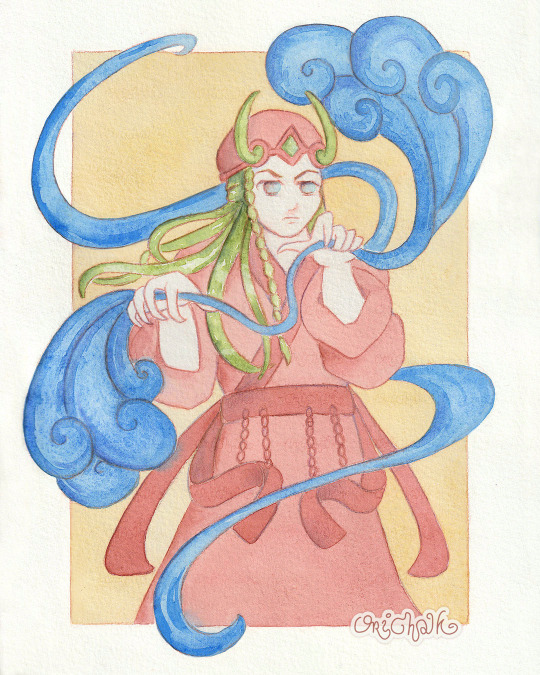
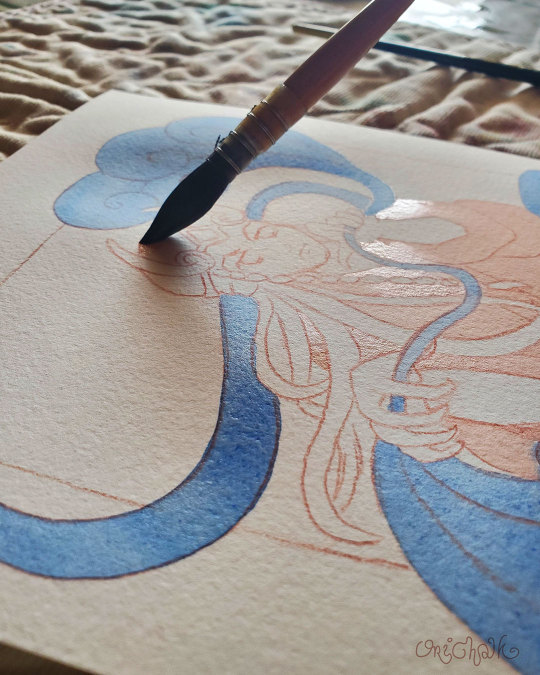

10 notes
·
View notes
Text
Thinking of retitling my indie game CREATORS.

New name idea?
IZANA: Japanese Creation Myth (誘: 天地開闢)

(Old title graphic for reference.)
What do you think? Explanation below!
Basically, CREATORS doesn't really fit the game's vision anymore.😕 Going over the story and writing, I realized the real focus of the creation myth isn't the couple gods' creations but their relationship.
So, izana or 誘 would both encompass both Izanagi and Izanami. The word's potential meanings (to persuade, entice, tempt) can also allude to varying story moments and tones.🤔 Izana also, in a way, provides a distinctly Japanese feel to the title, even without the Japanese writing or subtitle.

CREATORS has also brought some confusion. Sometimes, I get questioned if the game is like a Mario Maker-type of game. 😅
One negative is that IZANA has no meanings that come to mind in other languages like CREATORS. That might cause confusion. Also, the search "Izana game" brings up other game related subjects like another indie called "Witch Hunter Izana" and a Fire Emblem character.

At the same time, "creators game" brings up some sort of religious organization and a book about lacrosse and indigenous people.😬 So maybe the former's a better choice there?
And hey, one less thing to translate! If I ever get to translate it...😋
#game dev#gaming#rpg maker#japan#japanese mythology#japanese folklore#shinto#izanami#izanagi#minimal#teaser#Youtube#japanese gods#indie games#indie dev
2 notes
·
View notes
Text
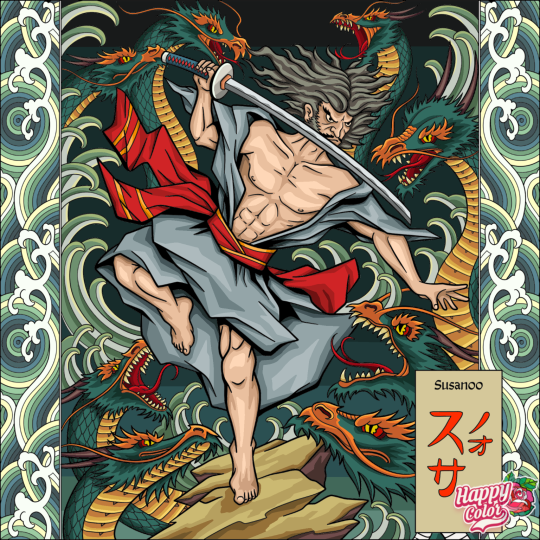
Susanoo, Susanoo-no-Mikoto
God of the sea, storms, fields, the harvest, marriage & love
Husband of Kushinadahime, Kamu-Ōichihime, Samirahime
#happy color#colouring#japanese mythology#japanese gods#japanese kami#susanoo#susanoo-no-mikoto#susanoo no mikoto
8 notes
·
View notes
